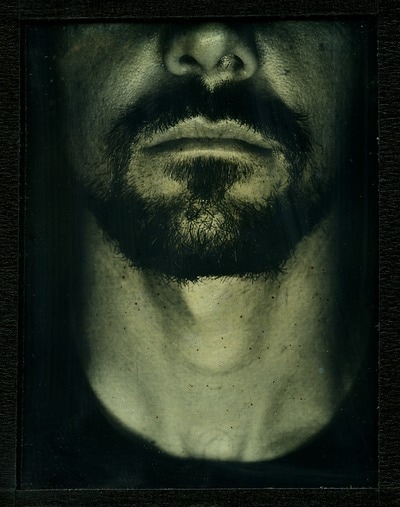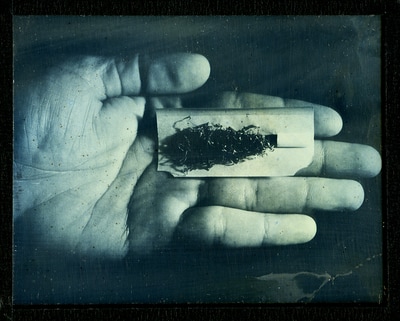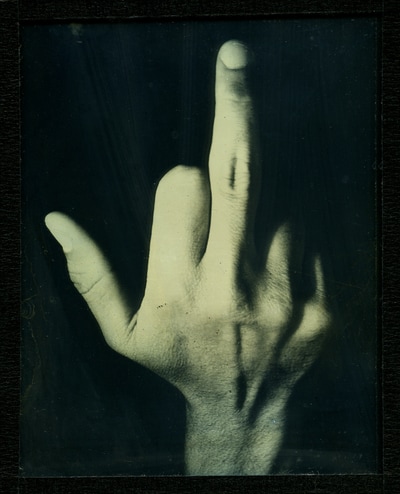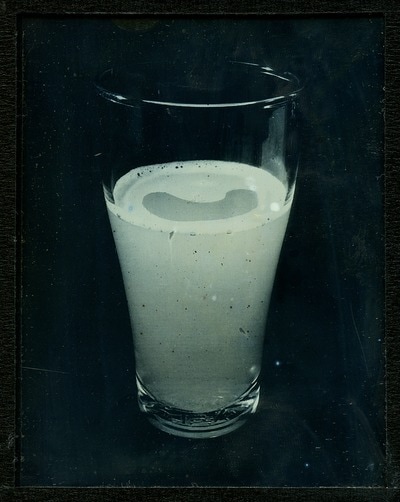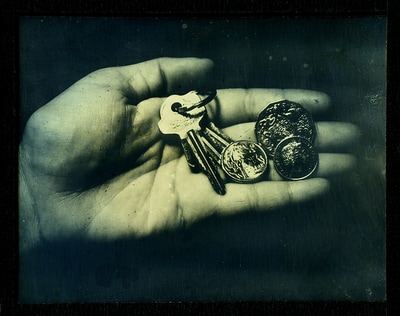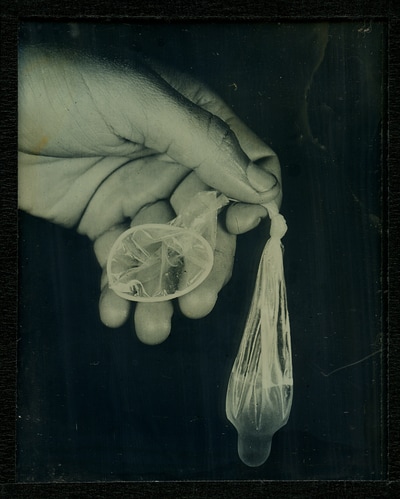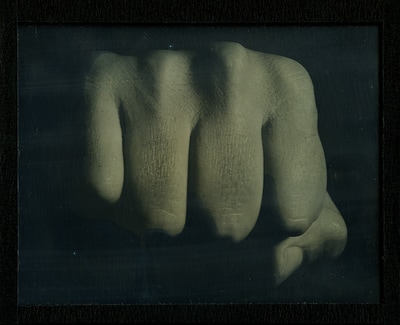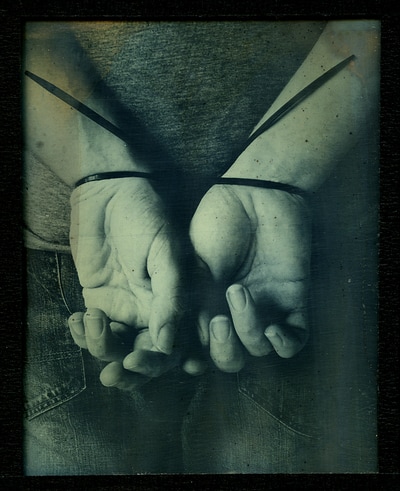Act Like a Man
Act Like a Man is a daguerreotype photographic series that explores notions of male masculinity and maturity in contemporary Australian society. This series questions the mainstream stereotypes of male adulthood through self-portraiture. For a young man in Australia it is confusing to define and understand the attributes of boy and man behaviour and the difference between these two states.
In mainstream society, there are many stereotypes of male masculinity and maturity that determine how men are meant to behave. A man in Australia is expected to be strong physically, be emotionless, have children, a job, drive a car and own a house. When a male turns 18 years old they are considered physically and mentally mature enough to drive a car, have sex, gamble, consume alcohol and smoke cigarettes. Those stereotypes of adulthood can be positive for young men if they are taught to be responsible. However, many of these social stereotypes of male masculinity and maturity can lead to severe problems for young men through unrealistic expectations of adulthood, including poor social behaviour, self harm, violence and even death.
Many of these negative effects seem to arise from from the multi-generational poor social education, development of young males by failing to teach healthy positive understandings of responsibility, self respect, caring for others and accountability of social behaviour. As a young man, I have experienced many of the negative effects of social stereotypes of male masculinity and maturity in my personal life. These experiences have led to some serious consequences. This series seeks to highlight some of the problems in Australian society with the way we view male masculinity and maturity.
In mainstream society, there are many stereotypes of male masculinity and maturity that determine how men are meant to behave. A man in Australia is expected to be strong physically, be emotionless, have children, a job, drive a car and own a house. When a male turns 18 years old they are considered physically and mentally mature enough to drive a car, have sex, gamble, consume alcohol and smoke cigarettes. Those stereotypes of adulthood can be positive for young men if they are taught to be responsible. However, many of these social stereotypes of male masculinity and maturity can lead to severe problems for young men through unrealistic expectations of adulthood, including poor social behaviour, self harm, violence and even death.
Many of these negative effects seem to arise from from the multi-generational poor social education, development of young males by failing to teach healthy positive understandings of responsibility, self respect, caring for others and accountability of social behaviour. As a young man, I have experienced many of the negative effects of social stereotypes of male masculinity and maturity in my personal life. These experiences have led to some serious consequences. This series seeks to highlight some of the problems in Australian society with the way we view male masculinity and maturity.
